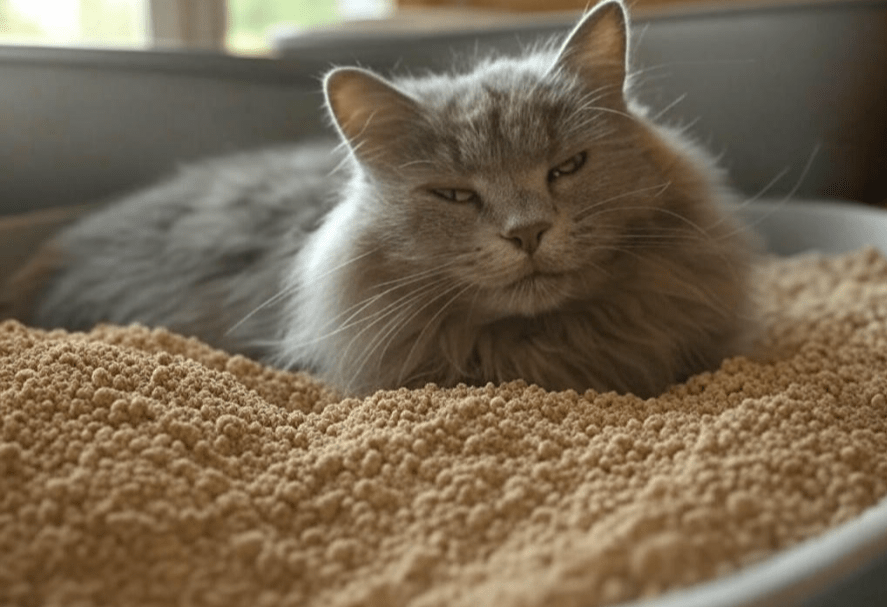
Cats stand out among pets because of their independent nature and popularity while also showing distinct personalities plus a few stubborn tendencies. You will encounter different training difficulties with an adopted senior cat who lacks litter box experience and may have undesirable actions. If you’ve recently brought an older cat into your home, you may wonder: How to train an older cat to use a litter box? Adult and senior cats need distinct training efforts because their litter box behaviour depends on natural kitten development and their environment.
Teaching an adult cat to use the litter box takes careful preparation as well as daily support because each cat behaves differently. No matter your situation with cats you can set up methods that help them learn to use the litter box.
This detailed tutorial will show you the successful methods that simplify the process for both you and your cat. By following these useful instructions you will successfully train your senior cat to use the litter box and maintain hygiene. Continue reading to learn effective ways that help senior cats adopt litter box training.
Overview of Key Points:
1.Recognising why it becomes harder to train an ageing feline.
2.Choose the suitable litter box and litter for senior cats while teaching them to use it.
3,The importance of location and cleanliness
4.This guide shows the right way to train an older cat.
5.Look for medical reasons and answer possible behaviour changes
6.Provide practical methods to encourage your senior cat’s training success
Understanding the Challenges of Training an Older Cat
Getting an older cat to use a litter box properly becomes easier when you approach the task successfully. As they grow older cats stick to established routines from their previous years. The first time will be toughest for your cat as they need to adapt to using a litter box. When your already-trained cat stops using the litter box now something different triggers this change rather than simply refusing the arrangement.
Older cats adjust with more difficulty and arthritis problems make getting into regular litter boxes hard for them. Cats need personalised training because of this we must approach their lessons with patience.
How to Choose the Right Litter Box and Litter for Senior Cats
The beginning of your training process depends on choosing proper litter equipment for your senior cat. Older cats may not handle high-sided litter boxes well because their arthritis and mobility issues make it difficult to enter and exit them. Get a litter box with low entry to make your senior cat’s movement easier into and out of the box without pain.
A larger litter box will make your senior cat feel more at ease during the training process. Elderly cats that possess a bigger size find relief when they use bigger litter boxes. Choose a box that gives senior cats enough room to roam within it comfortably. Since cats like alone time choose a litter box that offers enough personal space while making them feel protected.
Most cats prefer specific fabric textures and distinct scents in their litter areas. Seniors benefit most from smooth-textured low-dust litter that feels comfortable on their paws. Senior cats with nose and breathing problems need litters without strong scents. Try clumping clay or pine pellets without fragrance because they suit many senior cats well whereas other choices depend on your pet’s liking.
The Importance of Location and Cleanliness
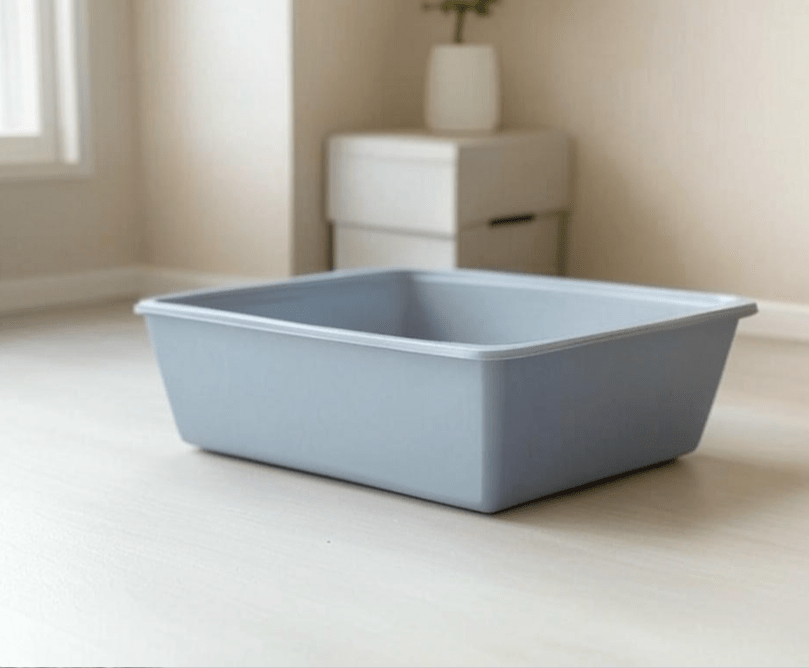
Placing the litter box in the right spot plays as important a role as any other step when teaching your senior cat new behaviours. Your cat must be able to use the litter box in a peaceful area away from busy spaces where they feel relaxed. Placing the litter box where your cat already uses the restroom familiarizes them with their new setup when possible. Cats prefer to keep their bathroom and feeding spaces apart so place the litter box away from their bowls.
Cleanliness matters most during the process of teaching your cat to use the litter box. Cats naturally clean themselves and expect their environment to stay tidy. Declining to use the litter box mainly results from an unwanted dirty litter box. Clean the litter box every day by scooping away waste and wash it completely with warm water and gentle soap once per week. Cats need a neat litter box to use it properly so you must keep it clean to help them feel at ease.
Step-by-Step Guide to Training an Older Cat
Here is a clear guide describing how you can teach your adult cat to use the litter box.
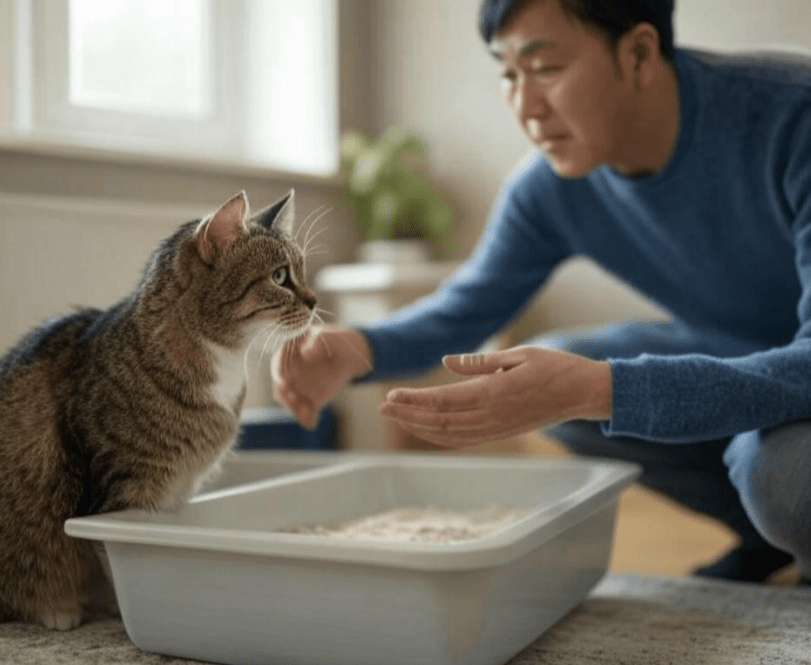
Step 1: Introduce the Litter Box
Let your cat discover the litter box by setting the area near its normal location. Ensure your cat enters the box to check it out by placing him in the space. Using gentle praise and reward methods will assist your cat in feeling secure during training. To train your cat you must first place yourself in the box with your pet until they grow calm about joining you in their toilet.
Step 2: Be Patient and Consistent
Cats require time to transition smoothly into new behaviors so you need to be tolerant with their litter box process. The older cat needs more time to learn new habits and experience some mishaps during this adjustment period. Keep calm when your cat avoids the litter box during the training period. Show your approval to your cat at every occasion they use the box correctly. You can choose between presenting food treats, speaking your positive thoughts or lightly stroking your cat as rewards.
Assist your older cat when entering and exiting the litter box due to physical problems.
Step 3: Help Them With Mobility Issues
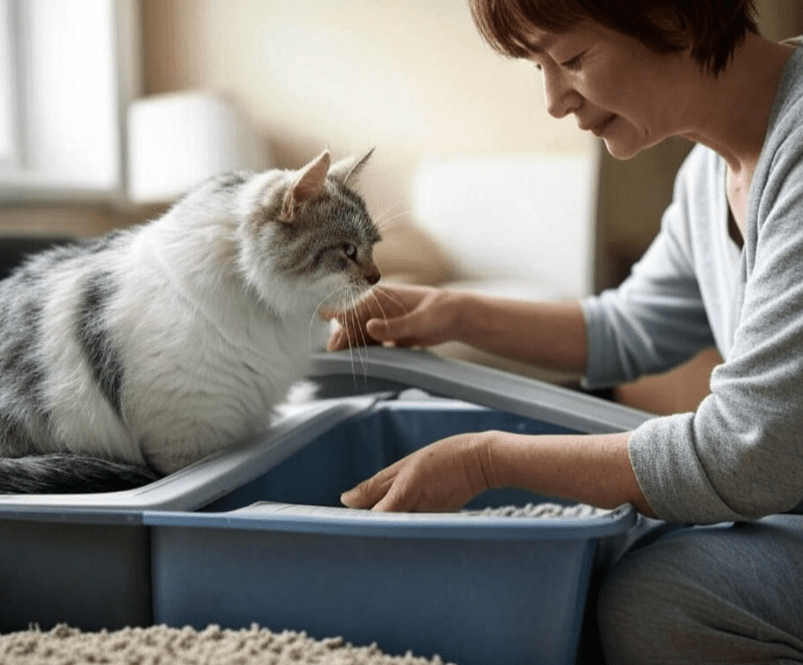
Support your cat with mobility when they need assistance entering and leaving the litter box because of their arthritis symptoms. Adjust the floor of the litter box to provide gentle entry points for your pet. Keep the litter box readily available for your cat and do not move it to new locations right away. Stability and consistency are key.
Step 4: Monitor Your Cat’s Behavior
Keep a watchful eye on how your cat responds to training at the start of the process. Pay attention to their stress or health signs if they stop using the litter box. Cheque for medical problems that might be causing the problem since poor health affects the litter box habit. Seek veterinary evaluation to find out if your older cat avoids the litter box because of medical problems.
Addressing Potential Health Issues and Behavioral Concerns
Ageing cats develop several health problems that limit their ability to use the litter box. The body of elderly cats can show symptoms like joint pain, bladder infections, or loss of bladder control. When your cat stops using the litter box you should speak with your veterinarian to check for medical reasons behind the change.
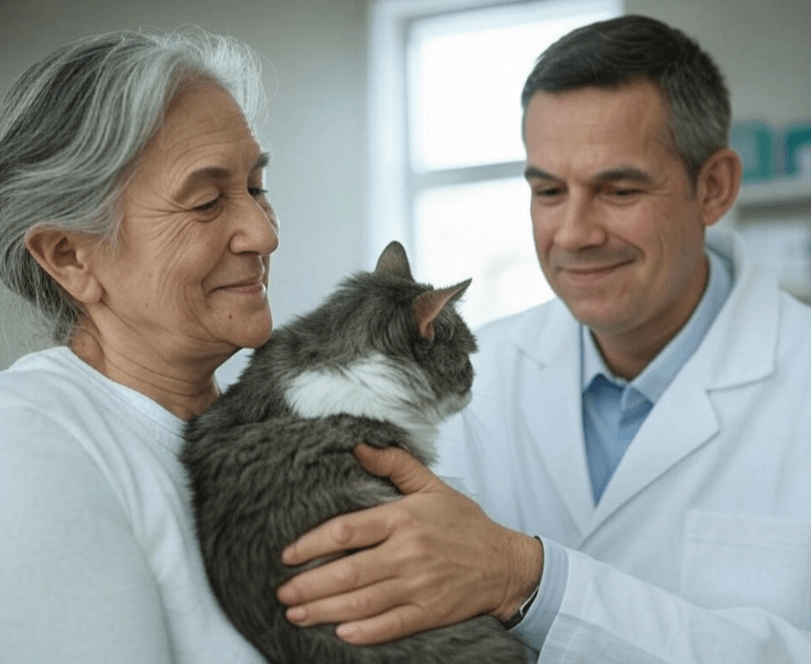
Psychological duress heavily impacts how an elderly feline acts. The lifestyle changes during a move such as a new home, pets, or daily schedule variation create stress that makes cats less likely to use their litter box. Providing a peaceful surroundings while spending quality time with your cat will lead your feline friend to become less anxious about using the litter box.
Tips for Keeping Your Cat Consistent and Motivated
Training an older cat about litter box success needs steady daily practice. Keep the litter box spotless and position it plainly for your cat to use it frequently. Having more than one litter box accident does not mean you need to give up on training. Keep positive reinforcement and patience during their training phase until better behavior becomes automatic.
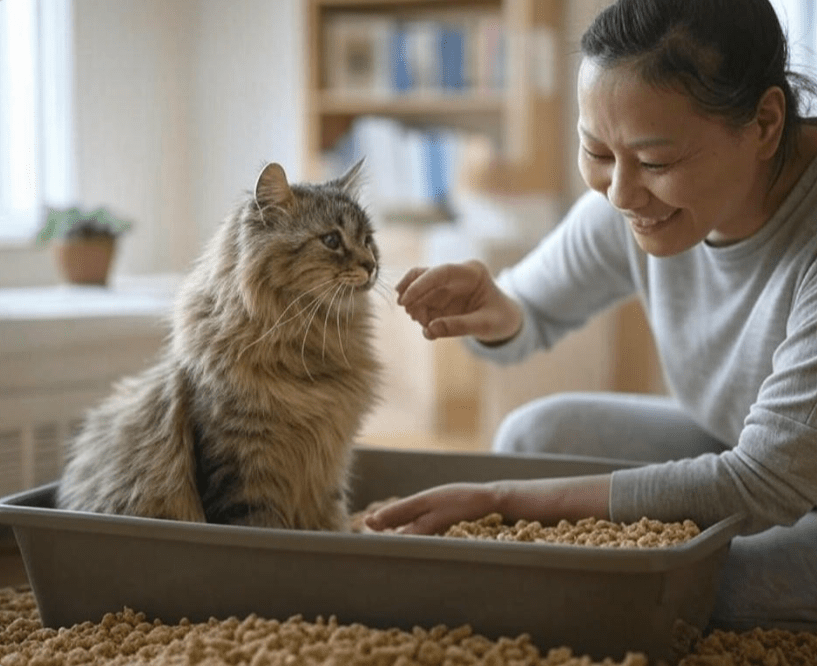
Location your litter boxes in several spaces to aid your older cat’s success. Your cat has better access to use the box because you add multiple locations.
Conclusion
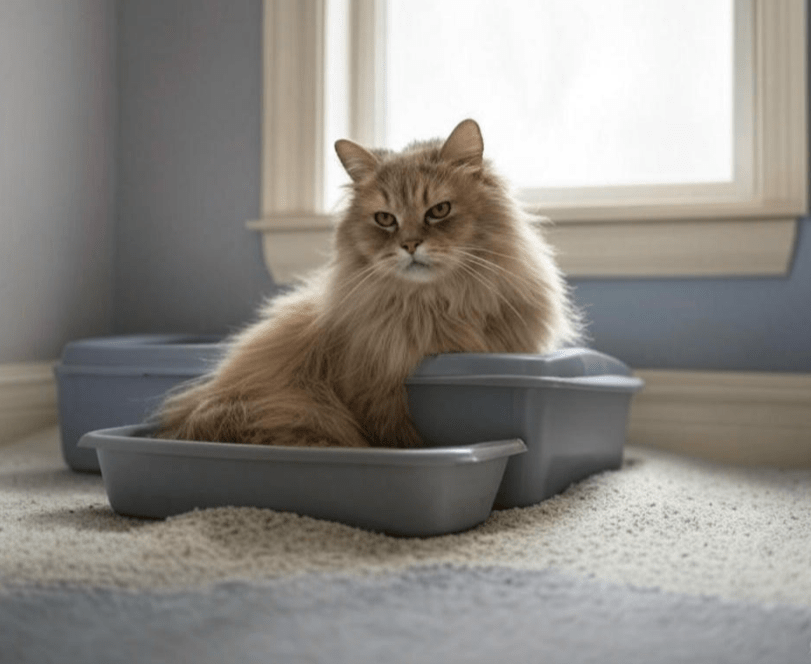
You need to show kindness and have strategic equipment to teach your ageing cat proper litter box habits. Placing your senior cat’s litter box where they feel comfortable can be achieved when you pick optimal materials and observably follow their movements. The path to good results depends on maintaining your approach and praising your cat successfully. Reach out to your veterinarian whenever your senior cat struggles with using the litter box for medical cheques. The older cat will learn proper litter box habits through consistent training methods.
